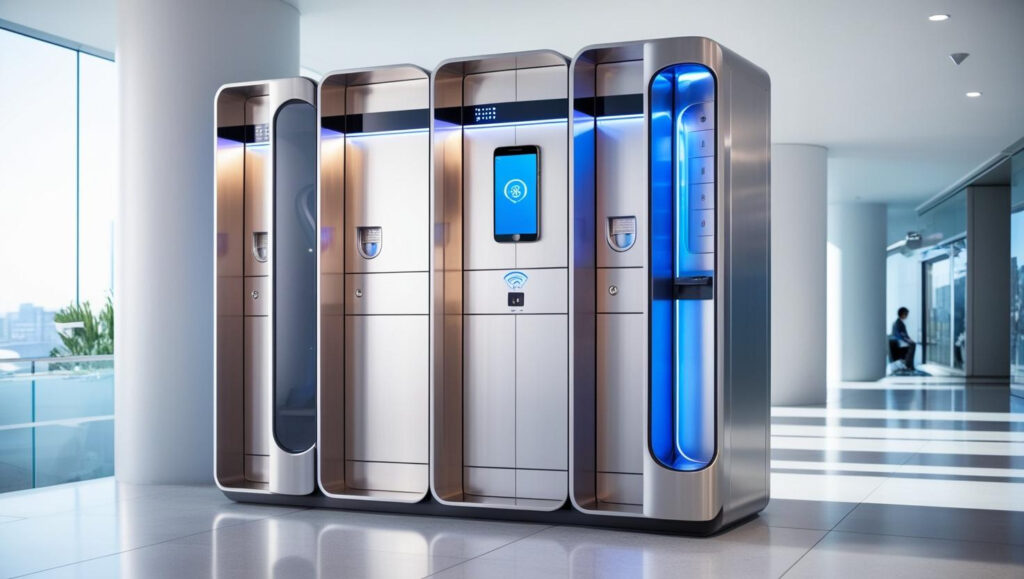The smart locker market is undergoing a significant transformation driven by the integration of Artificial Intelligence (AI). What began as a convenient, secure solution for parcel delivery and storage has evolved into an intelligent system capable of adapting to user behavior, optimizing logistics, and enhancing operational efficiency. As AI technologies mature, they are unlocking new opportunities for smart locker manufacturers, logistics providers, retailers, and property managers—while also introducing challenges that must be addressed to maximize potential.
Download PDF Brochure @ https://www.marketsandmarkets.com/pdfdownloadNew.asp?id=209948292

Opportunities Created by AI in the Smart Locker Market
1. Enhanced User Experience
AI enables smart lockers to learn from user behavior and optimize interactions. Features like facial recognition, voice-assisted access, personalized notifications, and real-time user support create a seamless and intuitive user experience.
2. Predictive Analytics for Maintenance and Operations
AI-powered systems can monitor locker usage patterns, predict potential faults, and schedule proactive maintenance. This minimizes downtime and reduces operational costs for service providers.
3. Optimized Delivery and Pickup Logistics
By analyzing traffic, weather, and delivery patterns, AI can help logistics providers determine optimal locker locations and streamline last-mile delivery. This leads to faster, more sustainable, and cost-effective delivery models.
4. Dynamic Resource Allocation
In high-traffic environments such as universities, offices, and apartment complexes, AI can allocate locker space dynamically based on demand forecasts, reducing congestion and improving availability.
5. Scalability for Smart Cities and Urban Hubs
With the rise of smart cities, AI allows locker systems to integrate with broader IoT ecosystems, enabling real-time communication with public transportation systems, security networks, and smart grids.
6. Improved Security and Access Control
Biometric verification, AI-powered surveillance, and anomaly detection systems improve the security of parcels and reduce the risk of theft or unauthorized access.
Key Challenges Hindering AI Adoption in Smart Lockers
1. High Initial Investment
Implementing AI technologies—such as vision systems, advanced sensors, and cloud-based analytics—requires substantial upfront capital, which may be a barrier for small and medium enterprises (SMEs).
2. Data Privacy and Compliance
AI systems collect and analyze large volumes of personal data. Ensuring compliance with regulations such as GDPR and CCPA is essential to protect user privacy and maintain trust.
3. Integration with Legacy Systems
Many existing infrastructure and delivery networks are not AI-ready. Integrating AI-powered lockers with legacy logistics, property management, or retail systems can be complex and costly.
4. Cybersecurity Risks
As AI introduces more connectivity and data exchange, it also expands the surface area for cyberattacks. Protecting AI-enabled smart lockers from hacking and data breaches is critical.
5. Need for Standardization
The lack of standardized protocols and APIs for AI integration across locker manufacturers and service providers creates interoperability challenges, especially in cross-border logistics.
The Road Ahead
The future of AI-powered smart lockers lies in their ability to become adaptive, autonomous service hubs within an interconnected digital ecosystem. Emerging use cases include:
- Integration with autonomous delivery drones and vehicles
- Contactless locker-based returns with automated refunds
- Real-time locker availability tracking and reservation via mobile apps
- AI-generated insights for customer behavior and logistics planning
As AI continues to mature, smart locker solutions will evolve beyond parcel delivery to support diverse applications such as document exchange, medical supply storage, and secure equipment rental.
The AI-powered evolution of the smart locker market is redefining convenience, security, and efficiency in storage and logistics. While the path forward includes technical and regulatory challenges, the opportunities presented by AI are vast and transformative. Businesses that invest in intelligent locker systems today will be better positioned to meet the demands of tomorrow’s urban, connected, and data-driven world.